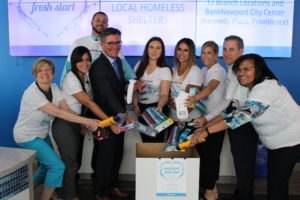Originally published in The Chronicle of Philanthropy, March 1, 2022
“The Molotov cocktails are the worst,” says my 99-year-old grandmother, reflecting on the violence erupting in her homeland of Ukraine. She remembers dodging them in the streets of Odessa as she fled invaders eight decades ago. “But,” she sighs during our weekly Skype chat from her home in Germany, “what can we actually do at this point?”
The short answer for everyone, but especially philanthropy, is quite a lot.
First, grant makers must respond to the immediate humanitarian crisis in Ukraine by providing much-needed rapid-response funds to help those on the ground. Millions of people are likely to need shelter, food, water, and medical care. Foundations and individual donors that can give rapid-response grants should connect with the Center for Disaster Philanthropy or their philanthropy colleagues who are in direct touch with Ukrainian grantee partners and who can most effectively channel funds to meet immediate needs.
Grant makers that have not established flexible-funding approaches should take this opportunity to embrace the notion that timely philanthropy is the most effective philanthropy — especially during a crisis.
Pushing Back on Misinformation
Second, philanthropy can play an important role in pushing back on the warmongering, misinformation-driven narrative woven into the conflict itself and the debate surrounding it. Much has been written about Russia’s use of disinformation in the 2016 U.S. presidential election and, most recently, its characterizations of Ukraine and its government. In both cases, Russian disinformation was amplified by conservative news outlets and politicians in this country, fueling the partisanship that stands in the way of genuine policy debate and consensus building. Such misinformation also feeds narratives that peace, diplomacy, and compromise are weak.
One of the most effective ways grant makers can respond is by supporting independent journalism and analysis that counters these narratives. For example, the 762 Project, which is run by volunteers in Ukraine and elsewhere, has been collecting, analyzing, and posting information about the buildup of Russian troops along Ukraine’s borders since last spring. Supporting local news sources in Ukraine, such as the English-language news site the Kyiv Independent, is especially important to ensuring that propaganda from outlets like the Kremlin-funded RT and social-media misinformation campaigns don’t drive decision making about the invasion.
Bolster Peace and Security Funding
Finally, philanthropy must increase its investment in peace and security broadly, and diversify who receives that funding. Without meaning to sound insensitive, this step is more important and more difficult than the short-term response to the war in Ukraine. It is the only way to achieve lasting peace and security in both Ukraine and future conflicts — and to identify and spotlight innovative, peace-focused solutions.
Peace and security funding accounts for just 1 percent of all grant making, which is as lopsided as the funding disparity between the State Department and the Department of Defense. The State Department’s $65 billion budget is 1 percent of the overall federal budget, while the Defense Department’s is 10 times that, or $773 billion. In a recent op-ed about American militarism, Patrick Hiller, director of the War Prevention Initiative at the Jubitz Family Foundation, noted that “diplomacy is the sidekick of the U.S. war machine when it comes to relations with the rest of the world.” Is it any wonder that diplomacy doesn’t have much of a fighting chance?
The 57 members of the Peace and Security Funders Group, which I manage, make up a passionate and strategic bunch, but we struggle to get adequate funding for our issues. Why?
During my 14 years of working in this area, I’ve heard three perennial reasons from grant makers for avoiding peace work:
In reality, hundreds of examples demonstrate how investing in peace building can stop or reduce conflict. And, as the old adage goes, an ounce of prevention is worth a pound of cure, especially when it comes to investments in peace versus war. As for those concerned about crossing too far into direct political involvement or lobbying, there are many options in the advocacy toolbox that both grant makers and nonprofits can deploy to effectively and legally engage in this work.
The peace and security arena is itself at a crossroads. One foundation colleague of mine often jokes that the field is mostly “pale, male, and stale.” Some have called the lack of diversity a national security crisis, and myriad initiatives are pushing for more diversity, equity, inclusion, and antiracism efforts. For instance, the nonprofit group Organizations in Solidarity “seeks to diversify the fields of peace and security, foreign policy, and national security,” with the goal of making the work more inclusive and equitable.
The field is beginning to grapple with a toxic culture that dismisses new ideas, as well as its role in upholding a white dominant system that favors solutions for only some of the world’s people. This is necessary and long overdue. As philanthropist and financier Frank Giustra observed, “Without peace and security, you can forget about advancing any of the other social issues philanthropy is trying to address. … It’s impossible to implement solutions in issue areas like health, education, and poverty unless you have a peaceful and stable environment to work in.”
The tragic and unnecessary war in Ukraine is unlikely to end anytime soon — and philanthropy has no excuse for sitting on the sidelines. Funds should be directed toward immediate humanitarian needs while also supporting organizations that are charting a more inclusive, equitable, and just path forward. We all need to learn to talk about peace in a way that’s empowering, inspiring, and radically feminist. For those grant makers who aren’t yet in the peace game, this is your chance. We have an opportunity to change history’s trajectory and prevent another devastating war.


